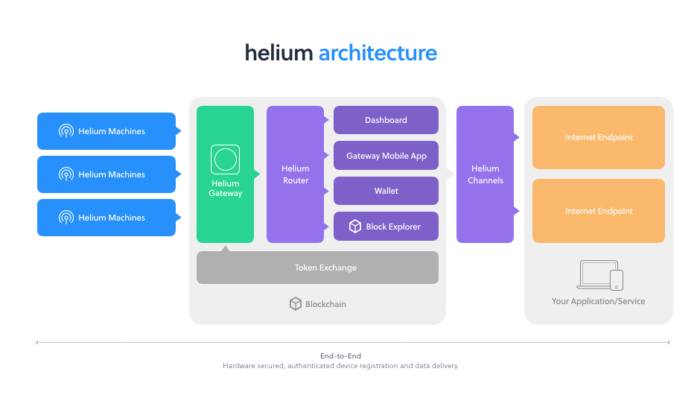› Forums › IoTStack › News (IoTStack) › Helium’s big innovation may be decentralizing certification
Tagged: Blockchain_G8, ConnectivityTech_S8, IoTNetwork_H5
- This topic has 0 replies, 1 voice, and was last updated 6 years, 7 months ago by
Curator 1 for Blogs.
-
AuthorPosts
-
-
June 14, 2018 at 3:07 pm #22756
[ See also Helium building LPWAN using cryptocurrency and Thinking Differently About IoT | Helium ]
A San Francisco company is trying to apply the blockchain to network connectivity for the internet of things. And unlike a cryptocurrency, the startup wants to use the blockchain as a way to certify both products that work on the network and the interoperability of devices used to create the network. It’s a pretty bold undertaking that offers a new way to build a network for the internet of things.
Helium is a startup that has been focused on the internet of things for as long as I have. The company began in 2012 with the goal of offering a Low-Power Wide-Area (LPWA) network product that could deliver small chunks of data from connected devices very cheaply. The initial products relied on the 802.14.5 radio protocol that underlies Thread and ZigBee standards.
But soon after creating the tech, the founder and CEO Amir Haleem realized that the radio wasn’t quite robust enough and that offering a network to companies was like offering a set of house plans to a person who wants to buy a house. Yes, the plans are essential, but they aren’t enough for the average person to build anything that’s move-in ready.
To make things easier for customers (and help the business), Helium switched to selling connected gateways and sensors. From there, the message evolved into a dedicated vertical solution for cold-chain management.
So Helium is pivoting full circle to become a network again. Haleem says that many of the existing IoT network providers are turning off customers with proprietary offerings, such as the closed networks from SigFox or Ingennu. He moreover thinks LoRa networks are also a problem for buyers because they become beholden to one chipmaker that makes the LoRa-compliant radios.
The solution is Helium’s software, which runs on any hardware platform and uses the blockchain to create a proof of coverage. Basically every gateway on the network must perform a consensus algorithm to determine that yes, it can talk to other devices on the network. Helium will sell the gateway, but Haleem says someone could make their own if they wanted to using a Raspberry Pi, available radios, and Helium’s software.
To create the first market, the equipment has to be cheap and people need to be offered incentives so that they’ll participate. That’s where payments come in. Anyone who sets up a gateway can set their own price to provide connectivity for devices. The second market will presumably emerge naturally from the first one.
It’s not an entirely new idea. Nodle, a startup founded by one of the creators of OpenSignal, is trying to build an ad hoc network using Bluetooth. It’s not relying on a custom-built blockchain to track payments, but it does want to pay app developers to embed Nodle’s software inside their apps and then charge other companies for access to the resulting network of phone data to offer services such as location
-
-
AuthorPosts
- You must be logged in to reply to this topic.

